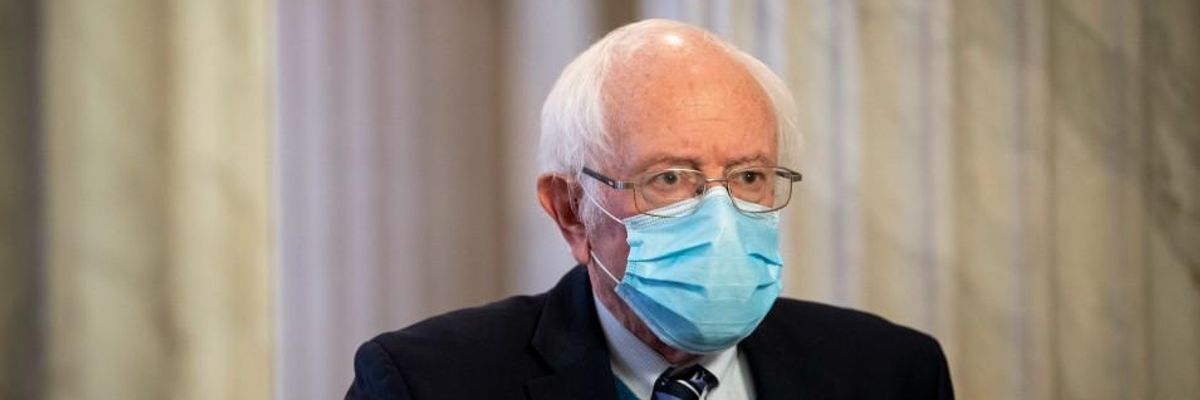Sen. Bernie Sanders of Vermont is reportedly pressuring Democratic lawmakers to use the forthcoming multi-trillion dollar infrastructure package to significantly expand Medicare by lowering the eligibility age from 65 to either 55 or 60--an idea President Joe Biden floated on the campaign trail last April.
Sanders, the chairman of the Senate Budget Committee, also wants to extend Medicare's coverage to often-expensive services such as dental work, glasses and eye surgeries, and hearing aids, according to Politico.
"In the rescue plan, we were able to take a major step forward in lowering child poverty--very important. Now I want to deal with issues facing seniors as well."
--Sen. Bernie Sanders
"We have to look at the structural long-term problems facing our people," Sanders told the outlet in an interview Friday. "We're talking about physical infrastructure, affordable housing. We're talking about transforming our energy system to deal with climate change. We're talking about human infrastructure."
"In the rescue plan, we were able to take a major step forward in lowering child poverty--very important," Sanders added. "Now I want to deal with issues facing seniors as well."
The Vermont senator is aiming to include his Medicare proposal, which has not yet been finalized, in an infrastructure-focused spending package that the White House and congressional Democrats are currently discussing. The legislation will likely have to go through the filibuster-proof reconciliation process given Republican opposition to the nascent plan.
A leading congressional supporter of the far more sweeping proposal to expand Medicare to everyone in the U.S., the Vermont senator said his plan to make the program more generous in the near-term could be funded partially by allowing Medicare to negotiate prescription drug prices, an idea Sanders believes would bring in around $450 billion in revenue over the next decade.
Earlier this week, as Common Dreams reported, Sanders and dozens of his congressional allies introduced The Medicare Drug Price Negotiation Act (pdf), which would lift a clause prohibiting the Health and Human Services Department from negotiating lower prescription drug prices on behalf of Medicare Part D beneficiaries.
Surveys have shown that the idea of lowering the Medicare eligibility age--which has been at 65 or older since the program's inception in 1965--is popular with the American public. A GoHealth survey from last October found that 70% of respondents not on Medicare at the time and 58% of Medicare beneficiaries supported the idea.
Additionally, according to an analysis by the healthcare consulting firm Avalere, lowering the Medicare eligibility age to 60 could extend the program's coverage to as many as 23 million people.
"It's the right thing to do," Sanders adviser Faiz Shakir tweeted Friday. "It's massively impactful. It's popular."

